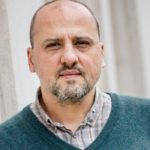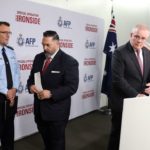Hats off for the Bishkek residents in Kyrgyzstan. After mounting street protests against the kidnapping of founder and president of Turkish- Kyrgyzstan Sapat school network, Orhan Inandi, they hold a silent vigil in front of the parliament and presidency for his return. Through the media they pledge to the world that they would continue until he is found. Demonstrations are said to have been held in other world cities including in the U.S. and Europe.
The Kyrgyz interior ministry is quoted as announcing that a task force had been formed and that the National Security Council was providing all possible assistance to the police. The presidency makes a similar promise. Looked at critically, the ministerial statement is very much distorted. It’s the security organs that hand over the arrested people, after interrogation and accompanying torture, to the police. The question of security agents giving assistance to the police is out.
Former Kyrgyz deputy foreign minister is quoted as saying the Turkish embassy building in Bishkek is inviolable based on the Vienna Convention, which is not new. It is something that was there yesterday, is here today, and will be there tomorrow with us.
The world has got to protest against operations of the Turkish Intelligence Organization (MiT) whose chief, Hakan Fidan, is said to have been responsible for abducting, to Turkey, 95 people working at schools run by the Gulen Movement.
One observation is that such operations have virtually been taking place in the African, Balkan and Southeast Asian countries. Is this an accident? Why are those destinations fertile for the MiT operations? Definitely not because they are close to Turkey. Are those countries easy to corrupt?
What is interesting is that while the Kyrgyzstan government promised to conduct deep investigation into Inandi disappearance, a pro-Erdogan media house back in Turkey, without quoting any sources, levelled the Bishkek kidnapping charge on the Kyrgyzstan Intelligence (UKMK) and that it was known to President Sadyr Japarov. He alleges that the plan was to hold and extradite him to Turkey to secure Erdogan’s support in their conflict with Tajikistan.
Participants in the vigil observe there must have been a deal and what was being done is just a show. If the Bishkek operation is anything to go by, the Nairobi Mission even raises bigger questions. After the abduction of Gulen’s nephew became public, a Kenyan Judge summoned senior intelligence officers to court to answer questions about their possible complexity in the crime. Media reports said they refused to appear. We are not told whether the judge would order the issue of arrest warrants. Or did the Kenya Government, therefore, know what was taking place? That is the question.
These two developments ring back my media-related memories concerning Bosnia and Rwanda genocide crimes of the 1990s and, in particular, what a U. S. Special Envoy to former Yugoslavia, Richard Holbrooke, had to say when addressing a two-day conference on “Between Past and Future” held at the Central European University in Budapest, about 22 years ago.
He told the conference: “Let’s be clear; the reason the West finally belatedly intervened was heavily related to media coverage. The reason Rwanda did not get the same kind of attention was heavily related to the media coverage — or the lack thereof”.
I will never forget a reason that was advanced by a female journalist very calmly when responding to a question. “I was in Rwanda. I did cover it… but the O.J. Simpson trial was on and I couldn’t get on the air for CNN,” she said very politely. Cynically, between a rape and genocide case involving millions of people, the media prefers to carry details of rape, which makes more business sense. And that is what the world is. It is said the media is the mirror of society.
Many governments in the world have played this abduction “dirty game”, are playing it and will continue doing so. Perpetrating governments advance the case of the U.S. government mounting similar operations after the September 11 bombing of the New York Twin Tower International Trading Centre. But, ethically, if other people steal, does this give one a reason for doing the same? And in the event of being caught in the act, does this warrant anyone to say: “If other people are doing it, why not me?”
A crime is a crime. It does not matter who is committing it. And this is where the global media fails the world through not digging deeper into crimes against humanity committed by governments, leading to untold suffering of innocent men, women and children.
The media profession needs global actors, the like of (former) journalist and now Turkish member of parliament, Ahmet Sik, who has bravely branded Turkey a “murderer” state and is now under investigation for that. In journalism practice, we say, if the need be, you publish and perish (lose a job) for the common good.
The Turkish prosecutor’s office accuses him of saying: “This state is a murderer… We need to destroy it. And let me say this openly, if AKP and this bloc are patriots and I am a terrorist, I’d prefer to be called a ‘terrorist’ to being a patriot like them.”
Where questions of human rights are concerned, media practitioners have to see themselves like trained engineers on site, where they are subject to factors like weather. At the schools of journalism, they are taught to be “neutral” and “objective” in the course of executing their job.
Fighting against human rights violations is a war. On a philosophical note, “neutrality” is something abstract. It is absolute, an affair of the mind. But in the field it somehow amounts to denying humanity of the affected people. And being “objective” is even something more difficult, particularly if you are part of it, an interested party. It is extremely difficult for one to make a judgment using the same measure or standard.
Pretense is difficult, if not impossible when you are on the same sinking boat. Back to Serbia, the same people who protested against Slobodan Milosevic stood together against the bombings of NATO. Similarly, divided as the world may be on the alleged involvement of Fethullah Gulen in the July 15, 2016 controversial failed coup, everybody must stand together against Erdogan’s domestic and globalized abductions targeting real and perceived members of the Gulen Movement wherever they are.
The people of Turkey and the rest of the world must realize that the real enemies of the country constitute totalitarian rule, demolished legislature, judiciary, executive and free media, compounded by corruption and other ills, according to mobster Sedat Peker’s recent verses. And that in the fight against these Turkish ills spilling over to other countries, the global media that feeds, critically thinks rather than being fed is a sine qua non.
By: Felix Kaiza
Source: Poli Turco



